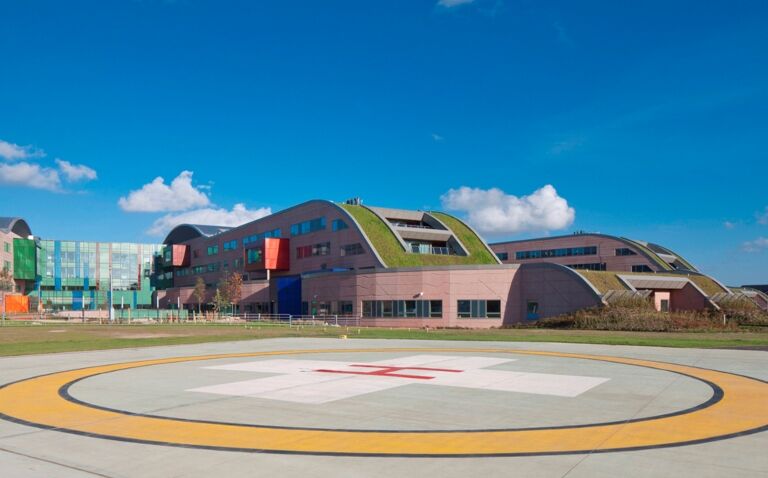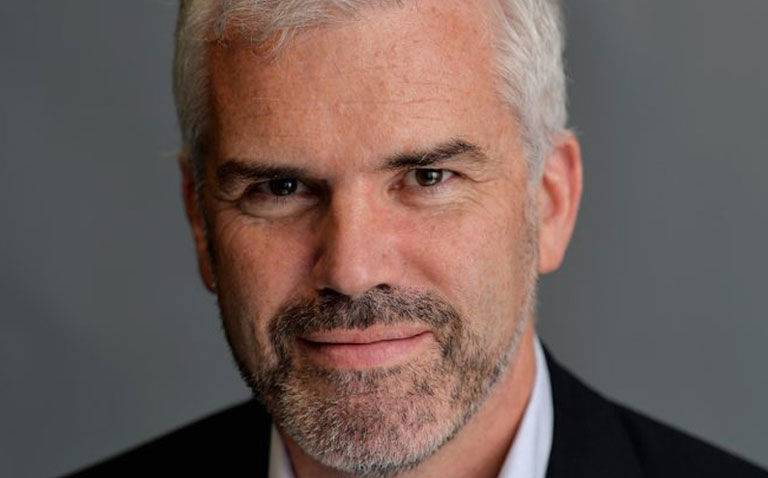Awarded an OBE in the New Year’s Honours list for services to paediatric surgery, Professor Simon Kenny is a consultant paediatric and neonatal surgeon at Alder Hey Children’s NHS Foundation Trust. He spoke to Saša Janković about how his varied leadership roles feed into one another, his work in advanced minimally invasive paediatric surgery and how addressing health inequalities can have the biggest impact on child health.
The first in his family to go to university, Professor Simon Kenny trained in the UK in Birmingham and Liverpool and in Melbourne, Australia, and has been a consultant paediatric and neonatal surgeon and urologist at Liverpool’s Alder Hey Children’s Hospital since 2003, with a specialist interest in urology and lower gastrointestinal surgery.
An honorary professor in child health, he has research interests including population level data and regenerative medicine, and is also the chair of the Women’s and Children’s Programme of Care in Specialised Commissioning.
If that wasn’t enough to keep him busy, Professor Kenny has also been NHS England’s national clinical director for children and young people since 2019.
Building the right foundations
As clinical director at Alder Hey Children’s Hospital – one of the biggest centres in Europe for children’s surgery – Professor Kenny played a significant role in redesigning services and moving into the brand new, and subsequently award-winning, Alder Hey in the Park building in 2015 (pictured below).
‘The first part of my career was about learning my craft and operating a lot, and it was at Liverpool that I developed the use laparoscopy in babies and children before taking on more of a clinical leadership role,’ explains Professor Kenny. ‘It then became clear that building a new children’s hospital would give us the opportunity to create a beacon for child health in the north-west of England.’
As a result, the old Victorian hospital was knocked down and its footprint made into a park, while the new Alder Hey was created in an open space next to the original buildings.
Alongside the physical change, Professor Kenny and his team were also able to redesign care processes. ‘We worked really closely with children and families as we were building the hospital and were able to realise a lot of the things that I’d wanted to see in terms of putting the child and family at the heart of care,’ he says.
A great example of this co-creation is the operating theatre – the design of which means no child going in sees a child coming out.
‘When a child comes for surgery, it could have life changing consequences for them,’ says Professor Kenny, ‘so we worked hard to make an environment which is welcoming, such as, for example, enabling parents to sleep alongside their baby after they’ve just had surgery.’

Getting It Right First Time
The success of this work, and the change management skills that it involved, gave Professor Kenny an appetite for more challenges. In 2017, this led to him taking on the role of clinical lead for the paediatric general surgery and urology workstream in the ‘Getting It Right First Time’ (GIRFT) programme.
This national programme, started by Tim Briggs at the Royal National Orthopaedic Hospital, is designed to improve the treatment and care of patients through in-depth, clinically led review of services, benchmarking and presenting a data-driven evidence base to support change.
Professor Kenny published his GIRFT report in February 2021 and made a series of recommendations to help make a difference in the lives of young patients. These have resulted in significant quality improvements in children’s surgery by modifying the existing model of care in England to ensure surgical expertise is concentrated in the right place for the right patients.
Among the most recent improvements is the release of the Summary Paediatric Indicator Table data tool – known as SPaedIT – which brings together provider-level data summarising demand, capacity, flow and outcomes in one place in an easily-accessible dashboard to support elective recovery.
In September 2023, Professor Kenny also led the publication of concise guidance offering 10 actions to help reduce waiting times for children.
Transformative practices in paediatric surgery
Professor Kenny’s experience as one of the first surgeons nationally to develop minimally invasive laparoscopy in children’s surgery has also enabled him to share his knowledge of transformative practices.
‘There are still issues around the technical side of children’s surgery – for example, that robotics is not yet as advanced in children’s surgery as it is for adults,’ he says.
‘But, actually, one of the main learnings I’ve had in the last 25 years since I’ve been engaged in consultant practices is that the biggest determinants of outcome for what we do are the socio-economic backgrounds of the children and families that we serve.’
Alongside health inequalities, Dr Kenny says the main challenges in paediatric surgery now are around the long-term outcomes for children who’ve had surgery.
His current research is looking at how to use data to measure those outcomes, which includes an NIHR research programme in conjunction with Oxford University for children’s surgical outcome reporting, establishing the core outcomes that are really important to children and families that experience paediatric surgery.
The next stage will be integrating the data into the electronic patient record and then having it available at a national – and, possibly, international – level, in order to benchmark and compare outcomes.
This in itself brings a challenge: paediatric surgery is a small speciality, and the procedures are quite rare, which means that the experience of individual surgeons is quite low, especially as they are spread across many different surgical centres.
As such, one of the recommendations from the ‘Getting It Right First Time’ report was to concentrate expertise in fewer centres, resulting in NHS England now having 10 operational delivery networks across the country, which are working to deliver that concentration.
‘It’s definitely a gradual process,’ says Professor Kenny, ‘but we are seeing major improvements as time goes by.’
Continuing research and supporting patients
Looking ahead, his interest in stem cell and regenerative therapies for rare conditions has seen Professor Kenny subspecialise in Hirschsprung’s disease – a rare, congenital bowel disorder – around which he has a long record of publication and research.
‘We’ve looked at the potential to use stem cell therapy to treat Hirschsprung’s disease and, in 2007, we were the first group internationally to isolate the stem cells from newborn babies,’ he says. ‘That work continues but it’s still a long path to clinical application because it has to be very safe and moving to transplantation into newborns is quite a major step.’
Meanwhile, Professor Kenny is a firm believer that while research is crucial, ‘you can’t do this job if you’re not actually seeing patients’.
He says: ‘The bit that’s really important is both that contact with children and parents and seeing first-hand what the data is telling us and then the other bit is in terms of credibility as a clinical leader. I know what the challenges are of working with electronic patient records, and I know the frustrations of having huge waiting lists, so I can speak with authority about it and I can empathise with people because I’m in the same position.’
Professor Kenny also believes it is important for consultants to broaden their professional scope, saying: ‘The great joy of children’s surgery is that close relationship with the children and families and the impact you have on them, but the attraction of the wider roles is being able to influence whole population groups.’
Embracing change to support paediatric health
His other career yardstick is, he says, that ‘if you’re faced with a decision in life that involves change, then you should probably take change’.
Indeed, taking these bold steps is in no small part what contributed to Professor Kenny being awarded an OBE for services to paediatric surgery in the King’s 2024 New Year Honours List.
Speaking at the time of the announcement, Professor Kenny said: ‘I am honoured and deeply humbled to be named in the King’s New Year Honours List 2024. Although this award is for me, none of this would have been possible without the hard work, commitment and support of the fantastic teams I work with both at Alder Hey Children’s Hospital and NHS England.’
While huge progress has been made, Professor Kenny is clear that the work he and his teams are undertaking locally and nationally is far from over. ‘There are so many challenges facing child health in this country in making sure that our children are emotionally and physically equipped for the life that’s coming,’ he says.
‘I’m really excited about how we can work with NHS England and across government to develop child-friendly policies that mean we guarantee the health and welfare of our nation – and that starts with the health and welfare of our children.’










